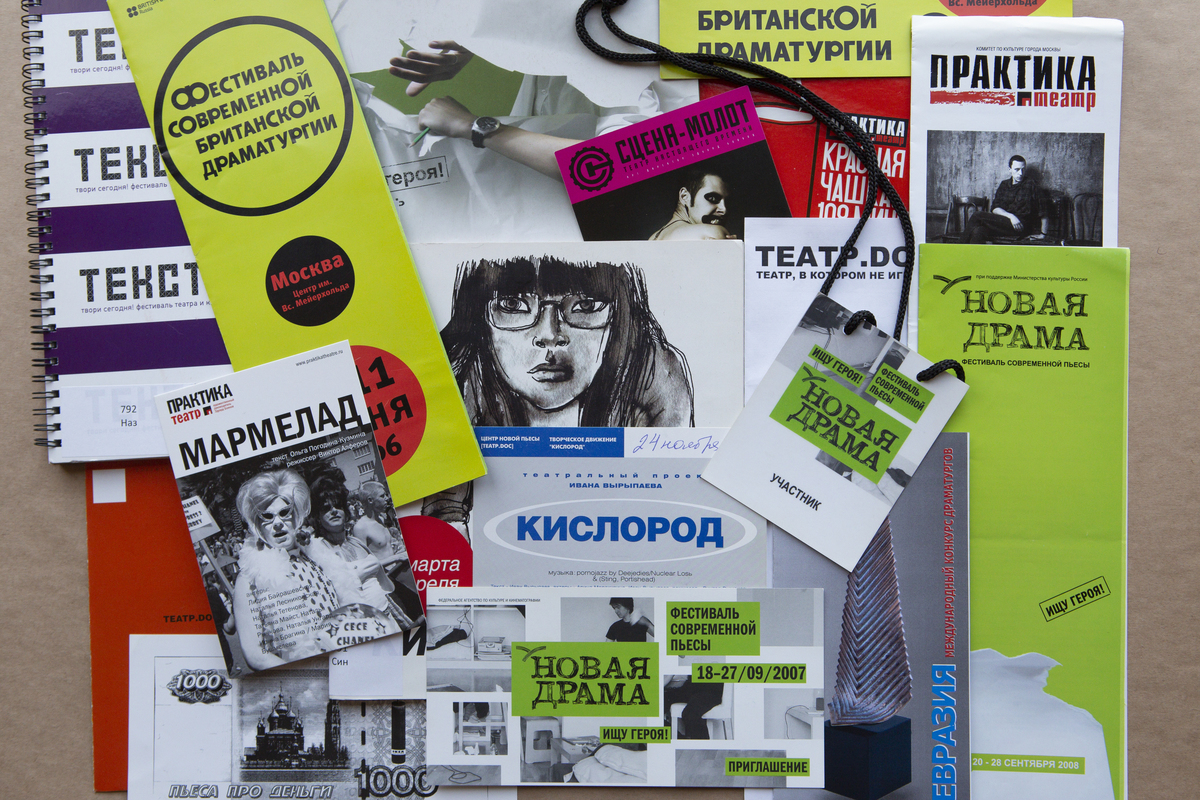Archive of the New Drama movement (1990–2010s)
New Drama is a theatrical and dramaturgy movement that emerged in the 2000s at the efforts of Mikhail Ugarov and Elena Gremina, the founders of the projects Documentary Play and Teatr.doc, as well as the New Drama Festival of contemporary drama (co‑founded with Eduard Boyakov) and seminars, laboratories, and discussions organized as part of the festival. An informal and unofficial association of playwrights, directors, actors, critics, and other practitioners, it was based on artistic principles articulated mainly in the field of documentary theater that formed at Teatr.doc and in the Ural and Togliatti auteur schools of dramaturgy (the former emerged as a result of the pedagogical and theatrical practice of Nikolay Kolyada; the latter is associated with the work of Vadim Levanov). While promoting its own worldview and strategies for its representation, the New Drama movement was oppositional and innovative by nature, focusing on such categories as reality, documentality (associated with the use of new dramatic and theatrical techniques, such as verbatim, etc.), provocation, the new and the current, as well as the authenticity of statement and the reader/viewer’s active position. It significantly influenced not only Russian theater but also cinema, while closely interacting with the contemporary art scene and political activists. Following the closure of the New Drama Festival in 2009, the movement began to disintegrate. However, its key aesthetic principles are supported by the Lubimovka Festival and Teatr.doc and by individuals within the movement, despite the death of its main ideologists — Mikhail Ugarov, Elena Gremina, and Vadim Levanov — and the shift in the practice of Eduard Boyakov.
About the archive
The archive contains programs, posters, invitation cards with materials dated 2000–2010s, and booklets, catalogues, and brochures specially published for events that took place at the festivals, seminars, discussions at Teatr.doc, Praktika Theater, Meyerhold Center, and other venues. It also includes critical reviews of events and interviews with participants, copies of articles and plays written by representatives of the movement, and manuscripts created during events. The core of the archive is the collection of theater researcher and Garage Research Department staff member Ilmira Bolotyan. The archive will be supplemented with documents from other sources.
- Collections
- Persons
- Keywords
- Type of entry
- Place
- Time span
